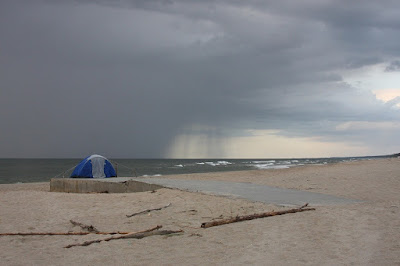We went to a lecture by John Hilliard where he was discussing his work, in particular the notion of the painted photograph. He seems highly invested in the area where photography and paintings cross paths, where things aren’t seen directly but as seen as a photograph. The conceptual framework for his making was complicated and thorough; he spoke about how the photograph was similar to a backdrop to an environment. Initially we re-learned why it was that we find conceptual art more interesting; ideas don’t really get old like technologies, it does become dated but only through art history as opposed to the ‘real world’.
Yet, as the talk went on it felt quite same-y, he had stretched the initial thought process rather far. We had always enjoyed the idea of referential art but there feels as if there might be a ceiling when it goes this far. However, we don’t know lots about him therefore could have many other works and just be discussing a certain few. There also seemed to be an ‘old-person’ negativity towards photoshop; this came in the form of comments similar to “and this is all before anything like photoshop”. Claiming this is completely fair enough and we can’t even begin to comprehend a world without such tools but it came with a kind of bitterness that we have it easier now. And it made us think about whether this focus on pre-photoshop ideas is valuable now. It feels bad to say but there has to be a need to move on or at least recognise ones place.
Yet, as the talk went on it felt quite same-y, he had stretched the initial thought process rather far. We had always enjoyed the idea of referential art but there feels as if there might be a ceiling when it goes this far. However, we don’t know lots about him therefore could have many other works and just be discussing a certain few. There also seemed to be an ‘old-person’ negativity towards photoshop; this came in the form of comments similar to “and this is all before anything like photoshop”. Claiming this is completely fair enough and we can’t even begin to comprehend a world without such tools but it came with a kind of bitterness that we have it easier now. And it made us think about whether this focus on pre-photoshop ideas is valuable now. It feels bad to say but there has to be a need to move on or at least recognise ones place.
Some students from the RCA came to talk to us about the course that they’re on called Public Sphere. The two students were Eliot Allison and Sonia Bernac and their collaboration is titled the Idle Institute. Their websites ca be reached by clicking on their names. Their respective art-making practices sounded playful but considered, something we like to see in our own work. We’re familiar with Eliot’s work since we were in a group exhibition with him a couple of years back and also because he attended CSM. His ideas are centred around conversation structures, language games and the conceptual circumstance of conversation. It often manifested itself as these awkward/embarrassing conversations, constructed by a set of rules.
Sonia Bernac was concerned with how public is narrative space; how stories interact within this same space. The way she navigated this territory was excellent; documenting every aspect of the process then annotating it. It was this archival approach to narrative that mostly interested us.
They then went on to discuss the course and how its dedicated to the themes. They hit on some poignant ideas about the public and public space. One that particularly resonated with us was that having a conversation isn't initiating a dialogue and that working in a public sphere is not just working with public. The first one is something we’ve touched on before with reference to cinematic narratives but not real life ones. Dialogue has a purpose as opposed to talking may not. Another distinction they made was between the courses; Critical Practice comes from a place of writing where as Public Sphere comes from a place of action.
The discussion with the biggest effect on our tangible life was cementing our belief with regards to doing an MA. This came when talking about the expense; to us it appears to be that one is exchanging cash (and a lot of it) for a mild increase in authority/validity. The other thing was they spoke about the use of the terminology; you need to know the "proper" use of the related terms which seems a little elitist/exclusive.
The discussion with the biggest effect on our tangible life was cementing our belief with regards to doing an MA. This came when talking about the expense; to us it appears to be that one is exchanging cash (and a lot of it) for a mild increase in authority/validity. The other thing was they spoke about the use of the terminology; you need to know the "proper" use of the related terms which seems a little elitist/exclusive.






